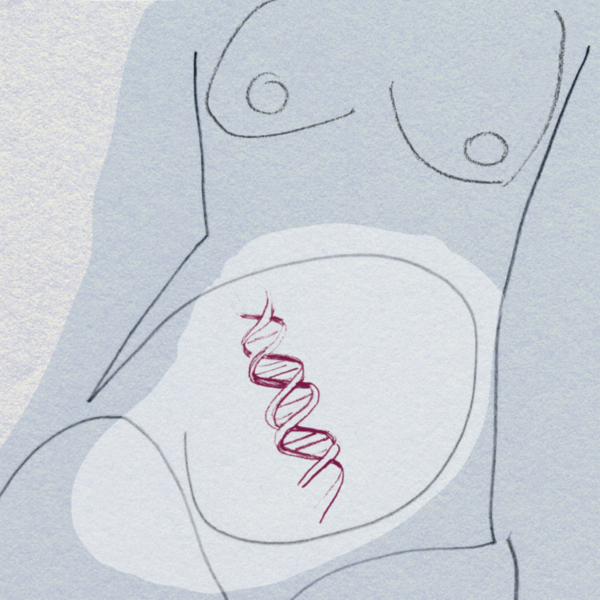PreGGI
Bedeutungen und Praktiken der pränatalen Genetik in Deutschland und Israel
Gefördert durch die Deutsche Forschungsgemeinschaft (DFG) (Projektlaufzeit 2017-2021).
Jüngste Entwicklungen in der pränatalen Genetik – insbesondere die Einführung nicht-invasiver pränataler Gentests auf chromosomale Variationen, wie die Trisomien 13, 18 und 21 (NIPT)- verändern die moralisch und kulturell komplexe Praxis der Pränataldiagnostik auf verschiedene Weisen. Diese Veränderungen berühren fundamentale ethische und philosophische Fragen über die Beziehungen zwischen den Generationen, über die Schwangerschaft und darüber, wer aus welchen Gründen geboren werden sollte.
Deutschland und Israel sind beides Länder mit technologisch fortschrittlichen Gesundheitssystemen. Jedoch unterscheiden sich ihre kulturellen Einstellungen zur Gen- und Reproduktionsmedizin und wie sie diese regulieren in vielerlei Hinsicht. Ihre Gesellschaften sind durch eine komplexe und tragische Geschichte miteinander verbunden, die auf den Holocaust zurück reicht. Der israelisch-deutsche Vergleich bietet den Rahmen für Forschungen, um die spezifischen kulturellen Praktiken, Diskurse und Kontexte der beiden Länder und möglicherweise darüber hinaus besser zu verstehen.
Ziel dieses Projekts war es, die Beziehung zwischen sozio-technologischen Veränderungen in pränataler Gendiagnostik zu beschreiben und zu analysieren, ihre kulturellen und historischen Voraussetzungen zu untersuchen und ihre Bedeutungen sowohl für Individuen als auch für zukünftige Gesellschaften zu interpretieren. Das Projekt untersuchte die Perspektiven und Einstellungen von NutzerInnen und Nicht-NutzerInnen des NIPT und hinterfragte ethische Bewertungen und rechtliche Regulationen der grundlegenden Annahmen. Dabei wurden Fragen der conditio humana, der Einschränkungen menschlicher Existenz, die Bedeutungen des Nicht-Wissens und der Verantwortung in der Genetik einbezogen.
Drei methodische Ansätze wurden in diesem Projekt verknüpft: (1) Eine vergleichende empirische Studie mit 42 semi-strukturierten Interviews in Deutschland und 52 in Israel. Zu den Befragten gehörten Fachleute aus dem Gesundheitswesen, die auf Geburtshilfe und Gynäkologie und/ oder Genetik spezialisiert sind; Frauen ohne ungewöhnliche medizinische Familiengeschichte; Eltern oder andere enge Angehörige von Kindern mit DS; und BehindertenaktivistInnen. (2) Eine philosophisch-theoretische Untersuchung von Schlüsselkonzepten, die in den Diskursen um Humangenetik eine Rolle spielen und (3) die Entwicklung einer kollaborativen Perspektive in Form einer israelisch-deutschen sozialphilosophischen Plattform zu biomedizinischen Technologien, epistemischen Diskursen und zur Körperpolitik.
Zentrale Ergebnisse sind: im deutschen Diskurs dominieren in der öffentlichen Diskussion Hinweise auf die historische Dimension, nämlich die Notwendigkeit, sich von den unmenschlichen Praktiken des Nationalsozialismus zu distanzieren und jegliche Verweise auf „Selektion“ oder „Eugenik“ zu vermeiden, jedoch gleichzeitig die individuelle Rolle der schwangeren Frau und ihr Recht zu einer informierten Auswahl zu unterstreichen. In der israelischen Praxis sind die verschiedenen pränatalen Tests inzwischen fest etabliert und werden als Stärkung der Entscheidungsfreiheit der Frau, als Sicherung des Lebens der Familie und als Verbesserung der „Gesundheit“ des jüdischen Kollektivkörpers verstanden.
Die Schlüsselbegriffe für diese unterschiedlichen – und in mancher Hinsicht entgegengesetzten – Praktiken sind „genetische Verantwortung“ und „genetisches Risiko“. Diese beziehen sich auf die jüdische Tradition (Halacha), welche den Menschen eine Mitverantwortung für das gute Leben gibt und den Fötus in seinen frühen Stadien nicht als „Person“ ansieht. In Deutschland entsprechen die ungelösten Debatten zu diesem Thema einer moralisch ambivalenten Haltung gegenüber den Tests. In Deutschland wird der NIPT zwar von den Krankenkassen übernommen (wenn auch nur auf Einzelfallbasis, die die Situation der schwangeren Frau und nicht des Fötus berücksichtigt, ab Frühjahr 2022), doch die Durchführung, auch wenn sie eine verbreitete Praxis geworden ist, wird von Bedenken und Kritik begleitet.
In den letzten Jahrzehnten hat sich die Art und Weise, wie die Sorgen um den Beginn des Lebens beschrieben werden in ein Vokabular von Risiko und Verantwortung verwandelt, das wir in beiden Ländern gefunden haben. Interessanterweise bringt der Fokus auf das Nicht-Wissen-Wollen und die Frage, ob es unverantwortlich wäre, genetische Risiken nicht im Voraus zu kennen (was eine israelische Frau in ihrem Interview klar andeutete) ans Licht, dass es in Israel normal und üblich ist, vorgeburtliche Gentests durchführen zu lassen und sogar als gesellschaftliche Anforderung angesehen werden kann, während in Deutschland eine solche Gewissheit und „Normalität“ von NIPT deutlich weniger verbreitet ist und gesellschaftliche Erwartungen zur Durchführung von Tests als sozialer Druck zurückgewiesen werden.
Die israelische Projektseite finden Sie hier.
Die Veröffentlichungen finden Sie hier.
Die Projektdissertationen finden Sie hier.
